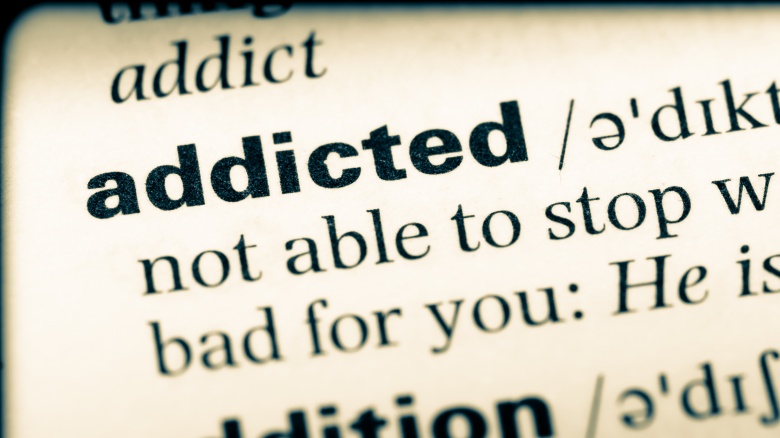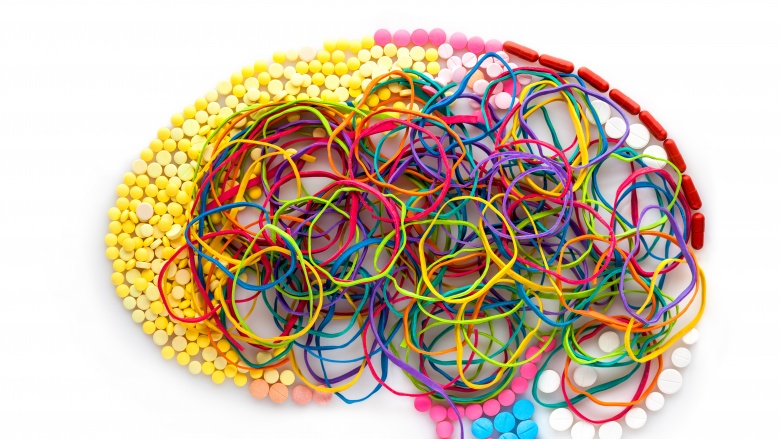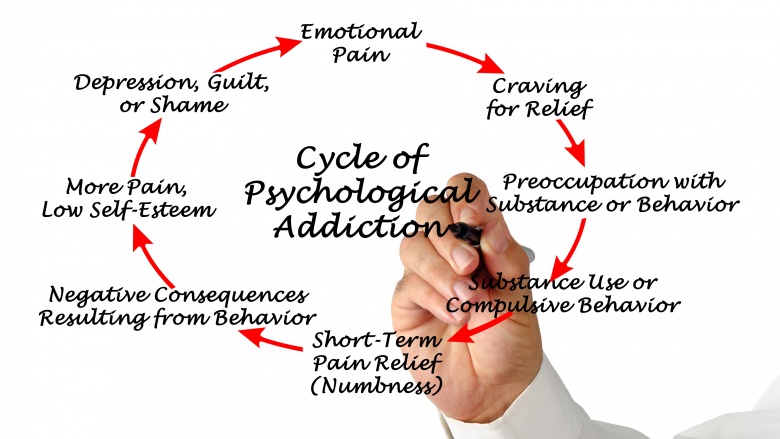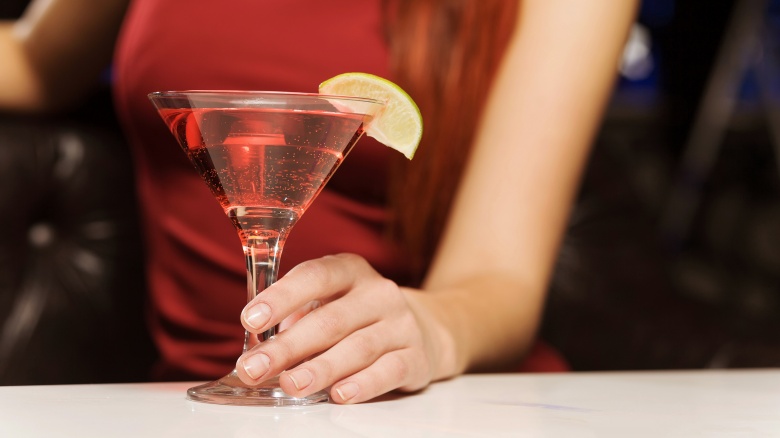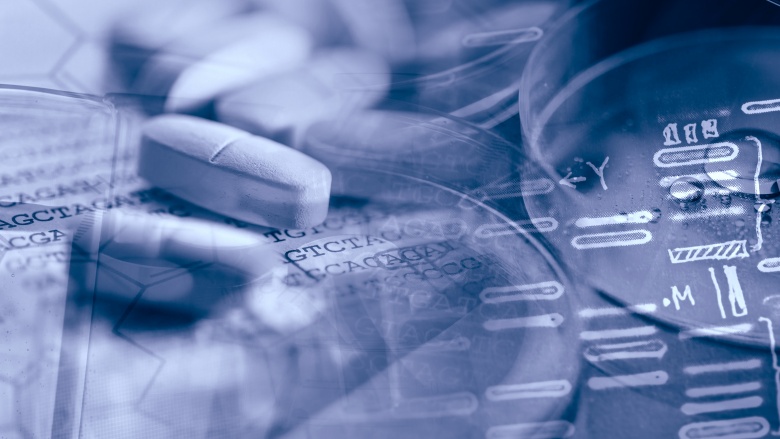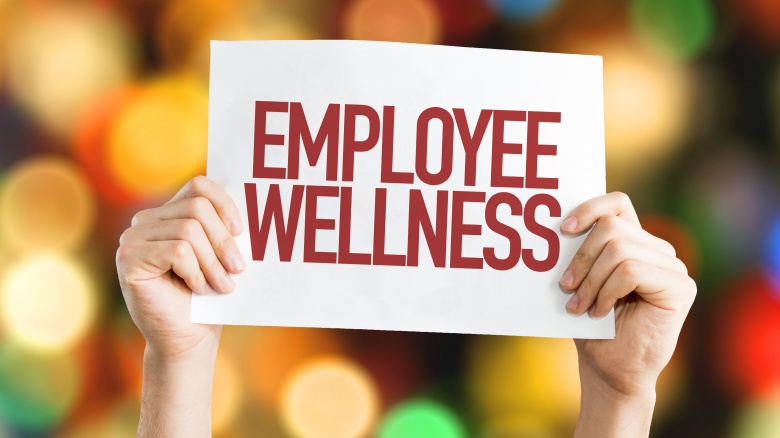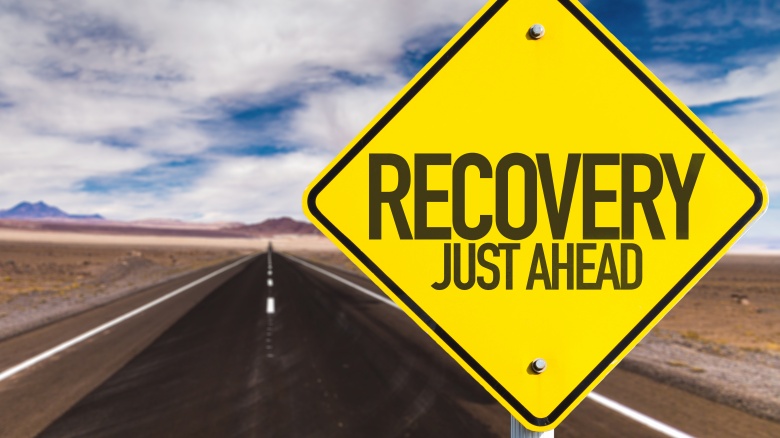Everything You Know About Addiction Is Wrong
With an alarming increase in the number of overdoses and drug-related crime that affects people in every walk of life in the United States, addiction has become a hot topic nationwide. While addiction to drugs and alcohol is what generally comes to mind when thinking about addiction, it is a disease that can raise its ugly head in many behaviors, including gambling, smoking, shopping, gaming, too much television or the internet, among others. It is a brain disease that is very difficult to overcome and readily misunderstood.
In fact, for many, everything they assume or think they know about addiction may very well be completely false.
According to the National Center on Addiction and Substance Abuse, 40 million Americans — or one in seven people — are addicted to drugs, alcohol or tobacco. This is more than the number of Americans with heart conditions, diabetes or cancer.
Ask most people what causes addiction — to drugs or alcohol, for example — and they would likely say it's by taking drugs or drinking over an extended period of time, to a point where it's impossible to stop. However, research indicates that this is an overly simplistic viewpoint that doesn't cover the complicated functions of the brain and the nature of the disease.
While addiction takes a huge toll on families, the workforce and society, this misunderstanding can lead to additional pain and disconnect that only exacerbates the problem. Very often this misunderstanding about the disease leads to shame for those addicted and the real — and frightening — threat of being shunned by friends, family and co-workers.
With an understanding of the nature of addiction, healing has a better chance of occurring and the debilitating emotional pain resulting in the addicted's sense of failure and shame can be alleviated. It is then that health, connections and relationships can be restored.
What exactly is addiction and are you at risk?
According to the The National Center on Addiction and Substance Abuse, addiction is "a complex disease, often chronic in nature, which affects the functioning of the brain and body. The most common symptoms of addiction are severe loss of control, continued use despite serious consequences, preoccupation with using, failed attempts to quit, tolerance and withdrawal."
Like many other serious and chronic diseases, people with severe addiction become more ill over time. They may develop other illnesses as a result of the disease and can ultimately die without treatment.
According to Addictions and Recovery, an addiction must meet at least three of the following criteria, based on the criteria of the American Psychiatric Association (DSM-IV) and World Health Organization (ICD-10).
1. Tolerance. Has your use of alcohol or drugs or that of a loved one increased over time?
2. Withdrawal. Do you or does your loved one experience physical or emotional withdrawal when you try to stop having a drink or taking drugs? When you try to stop, do you experience anxiety, irritability, shakes, sweats, nausea, or vomiting?
3. Limited control. Do you or your loved one have trouble limiting how much you drink or use drugs? Is getting drunk a priority? Does one drink almost lead to more drinks at times?
4. Negative consequences. Do you or someone you love continue to use even though there have been negative consequences to your mood, self-esteem, health, job, or family?
5. Neglected or postponed activities. Do you put off or reduce social, recreational, work, or household activities at times because of your use?
6. Significant time or energy spent. Do you spend a lot of time obtaining, using, concealing, planning, or recovering from your use? Do you think about using? Do you ever minimize your use? Do you ever plan how to avoid getting caught?
7. Desire to cut down. Do you tell yourself you need to cut down on your drinking or controlling your use? Have you or a loved one tried and failed to cut down or control drinking or drug use?
Of course, as previously mentioned, addiction is a very complicated mental and behavioral disorder, and a physician is crucial in determining if you or your loved one is in the throes of an addiction and provide treatment accordingly.
The toll on families, workplace and society may be greater than you think
Drugs and alcohol take a tremendous toll on our society on so many levels, and it's safe to say that every community and every family is affected by addiction to illegal drugs and alcohol, either directly or indirectly. However, unless people become better educated about the disease, addicted individuals will continue to suffer from loss of much-needed connections to others.
According to NIDA, the economic impact of drug and alcohol addiction on the United States is a staggering $484 billion per year. Drug and alcohol addiction-related costs include:
- Crimes and incarceration
- Drug addiction treatment
- Medical costs from overdoses
- Insurance costs for the employer and individuals
- Drug and alcohol-related injuries and complications
- Time lost from work
- Social welfare programs.
Because drug addiction and alcoholism are diseases of the frontal vortex of the brain, which is the center of judgment and behavioral decisions, drug addicts and alcoholics have a tendency to break the law with little regard to the consequences in order to obtain the substances that they crave and in extreme cases, need for survival. In addition, drugs and alcohol affect the addicted individual's inhibitions, lowering their sense of indestructibility, according to NIDA. This lack of inhibition can lead to an increase in aggressive and irresponsible behavior. According to the Center for Disease Control and Prevention, a third of all traffic accidents are attributed to impaired driving.
What happens to your brain if you drink or use drugs too often?
When drugs and alcohol are taken in excess, they "activate the brain's reward system, which is involved in the reinforcement of behaviors and the production of memories," according to the Diagnostic and Statistical Manual of Mental Disorders. The activation of the reward system by drugs and alcohol is so powerful that normal activities are changed and at times, neglected. That explains why some people do things that are completely outside of their normal sense of values and morality to keep their brain at the needed level of stimulation.
In recent years, scientists have made a connection between substance abuse and the frontal cortex of the brain. According to the American Psychological Association, "brain-imaging studies in humans and neuropsychological studies in nonhuman animals indicate that repeated drug use causes disruptions in the brain's highly evolved frontal cortex, which regulates cognitive activities such as decision-making, response inhibition, planning and memory."
"We now know that many of the drugs of abuse target not just those aspects of the brain that alter things like emotion, but also areas that affect our ability to control cognitive operations," says Herb Weingartner, PhD, of the Division of Neuroscience and Behavioral Research at the National Institute on Drug Abuse (NIDA).
The research has shed light and hope on what was once — and still is in some circles — considered a moral decision, which invariably leads to shame and judgment for the person suffering from substance abuse syndrome. It also helps medical practitioners better understand why only some users of drugs or alcohol become addicted.
"In the past few years, people have begun to recognize that drug abuse is not a pharmacological disease — it's a pharmacological and behavioral disease," said Elliot A. Stein, PhD, a neuroscientist at the Medical College of Wisconsin. "The cognitive functions that sit in the frontal lobes play a role in drug abuse."
Because the frontal cortex of the addicted's brain is altered by drugs and alcohol, and for some, altered even before drugs and alcohol have been consumed, relapse can easily easily occur even after long periods of abstinence. In fact, relapse is expected and not a failure.
Sometimes it's nearly impossible to break free from the cycle of addiction
Addiction often takes a predictable and cyclical pattern from which it is very difficult for the addicted individual to break free.
According Recovery Connection, once you or a loved one are in the throes of addiction, the brain takes over and places the person suffering from substance abuse syndrome in a dangerous cycle of psychological dependency. It is at this time that family members often threaten to take away the very thing the person suffering needs most — connection.
As can be seen by the illustration, emotional pain leads to intense craving for the substance that the person, out of experience, knows will end the suffering, both emotionally and physically. The craving leads to a preoccupation with obtaining the substance of choice, with little regard to the consequences of the substance on the person's health, relationships, or the future. The drink or the hit of drugs gives short-term relief, but with the relief can come negative consequences while the person is under the influence of drugs and/or alcohol.
The guilt experienced can be devastating to the individual, leading to a lowered self-esteem, depression, guilt and an incredible amount of shame, which can lead the person right back where they started — deep in the emotional pain that brought on the craving in the first place, along with the never-ending cycle that will continue until broken through proper treatment.
Once addicted, you loose your power to choose
While picking up the first glass of alcohol or taking a drug may be a choice for some, most experts agree that a person eventually loses control of their behavior as the substance alters the chemical makeup and mechanics of the brain and body. It no longer becomes a choice to drink or use, but a need for survival in the mind of the addicted. As the disease progresses, the person can die if they do not have the substance their body now needs. Studies have shown this is particularly true of alcohol.
As the brain becomes altered by the use of the substance, the person suffering from a substance abuse disorder eventually loses their ability to chose wisely. That area of the brain takes over and the person is at the mercy of the brain's needs. This disease is very clever in convincing an individual that picking up a drink or using a drug is a very good idea, no matter the consequences.
Addiction is very similar to diabetes, cancer and heart disease, in that it is a result of a variety of behavioral, environmental and biological factors. About half of those addicted have a genetic predisposition to the disease.
Addiction involves a change in the functioning of the brain and body, which can be helped by being in a supportive and loving atmosphere. These changes may be a result of extended use of the drug or alcohol, but as recent research indicates, may also pre-exist even before a person takes his or her first drink or takes drugs.
You might be at risk of becoming an addict from the day you're born
As previously mentioned, about half of those suffering from a substance abuse disorder have a genetic predisposition to the disorder. In other words, they are born this way.
According to the National Council of Addiction and Substance Abuse, there is a plethora of scientific studies that indicate that alcohol and drug dependency runs in families. Research conducted on twins and adopted children has shown just how important the role of genetics plays in addiction. There is no single gene responsible for addictive behaviors. Instead, researchers have identified numerous genes that have a role in the risk of developing a dependence on a substance.
Many employers are beginning to recognize addiction as a chronic disease
An encouraging trend in the workplace is that employers are becoming more and more aware that addiction is a disease and should be treated as such. This has led to an increase in the number of treatment options and programs included in insurance policies and work-place policies that encourage treatment rather than termination.
According to NCAAD, encouraging and supporting treatment for employees is good for everyone and can drastically reduce the cost to the employers. With 70 percent of the estimated 14.8 million Americans who use illegal drugs and alcohol in the workforce, it just makes better sense that the employer supports employees struggling with the chronic disease. Most employers wouldn't give a second thought about offering programs that support those with other chronic illness like heart disease and diabetes, and as more and more employers come to the realization that substance abuse is really no different than other diseases that are based to some degree on life-style choices, the door swings wide open to help staunch the stigma and shame that comes with addiction.
The NCAAD notes that research indicates that "alcohol and drug treatment pays for itself in reduced healthcare costs that begin as soon as people begin recovery; employers with successful Employee Assistance Programs (EAPs) report improvements in morale and productivity and decreases in absenteeism, accidents, downtime, turnover, and theft; and employers with longstanding programs also report better health status among employees and family members and decreased use of medical benefits by these same groups."
Employers are also realizing along with the wider population of this country, that due to the nature of the disease, relapse is to be expected and should not be a reason for termination.
The road to recovery is difficult but life-changing
While the road to recovery is difficult and wrought with many bumps and setbacks, it is possible and life-changing for the person caught in the cycle of addiction.
As awareness increases that substance abuse is a disease and not a question of will-power, the stigma of alcoholism and drug abuse and the shame the individual suffers is decreased. This awareness greatly enhances the likelihood of a successful recovery. While it is unlikely that the disease can be cured, NIDA notes that the disease can be managed. Proper treatment "enables people to counteract addiction's powerful disruptive effects on their brain and behavior and regain control of their lives."
NIDA also notes that relapse is not a failure.
"Treatment of chronic diseases involves changing deeply imbedded behaviors, and relapse does not mean treatment has failed. For a person recovering from addiction, lapsing back to drug use indicates that treatment needs to be reinstated or adjusted or that another treatment should be tried," according to NIDA.
Rebuilding connections to others is the best medicine
In a popular TED Talk, Johann Hari laid out a compelling argument that everything we know about addiction is wrong and stressed that connection is the key to recovery and a healthier society.
He notes that addiction might be better thought of in different terms.
"Maybe we should call it bonding," Hari says. "Human beings have a natural and innate need to bond, and when we're happy and healthy, we'll bond and connect with each other, but if you can't do that, because you're traumatized or isolated or beaten down by life, you will bond with something that will give you some sense of relief. Now, that might be gambling, that might be pornography, that might be cocaine, that might be cannabis, but you will bond and connect with something because that's our nature. That's what we want as human beings."
He shares that what often and sadly happens today is the addicted individual is confronted by family, employers and friends with a threat of separation and disconnect from the very thing the addicted craves — a bond, a connection. He cites the television reality show Intervention, in which this very scenario happens episode after episode.
"If you've ever seen the show Intervention, it's a pretty simple premise," says Hari. "Get an addict, all the people in their life, gather them together, confront them with what they're doing, and they say, if you don't shape up, we're going to cut you off. So what they do is they take the connection to the addict, and they threaten it, they make it contingent on the addict behaving the way they want."
Hari, like so many experts on addiction, believes this approach is damaging and only reinforces the psychological cycle that keeps the addict entrapped in their nightmare, and it is a nightmare because no one ever dreams of becoming an addict or alcoholic.
Hari submits that it is through love and the strengthening of connections that the addiction loses its power over the afflicted, over families and over relationships.
"What I've tried to do now, and I can't tell you I do it consistently and I can't tell you it's easy, is to say to the addicts in my life that I want to deepen the connection with them, to say to them, I love you whether you're using or you're not," Hari says. "I love you, whatever state you're in, and if you need me, I'll come and sit with you because I love you and I don't want you to be alone or to feel alone."
In his conclusion, Hari voices what every addict and alcoholic has longed to hear throughout their struggle:
"I think the core of that message — you're not alone, we love you — has to be at every level of how we respond to addicts, socially, politically and individually. For 100 years now, we've been singing war songs about addicts. I think all along we should have been singing love songs to them, because the opposite of addiction is not sobriety. The opposite of addiction is connection."


